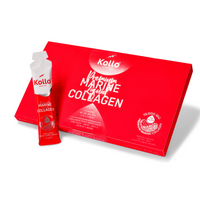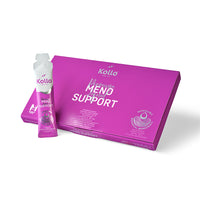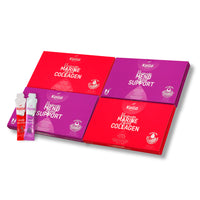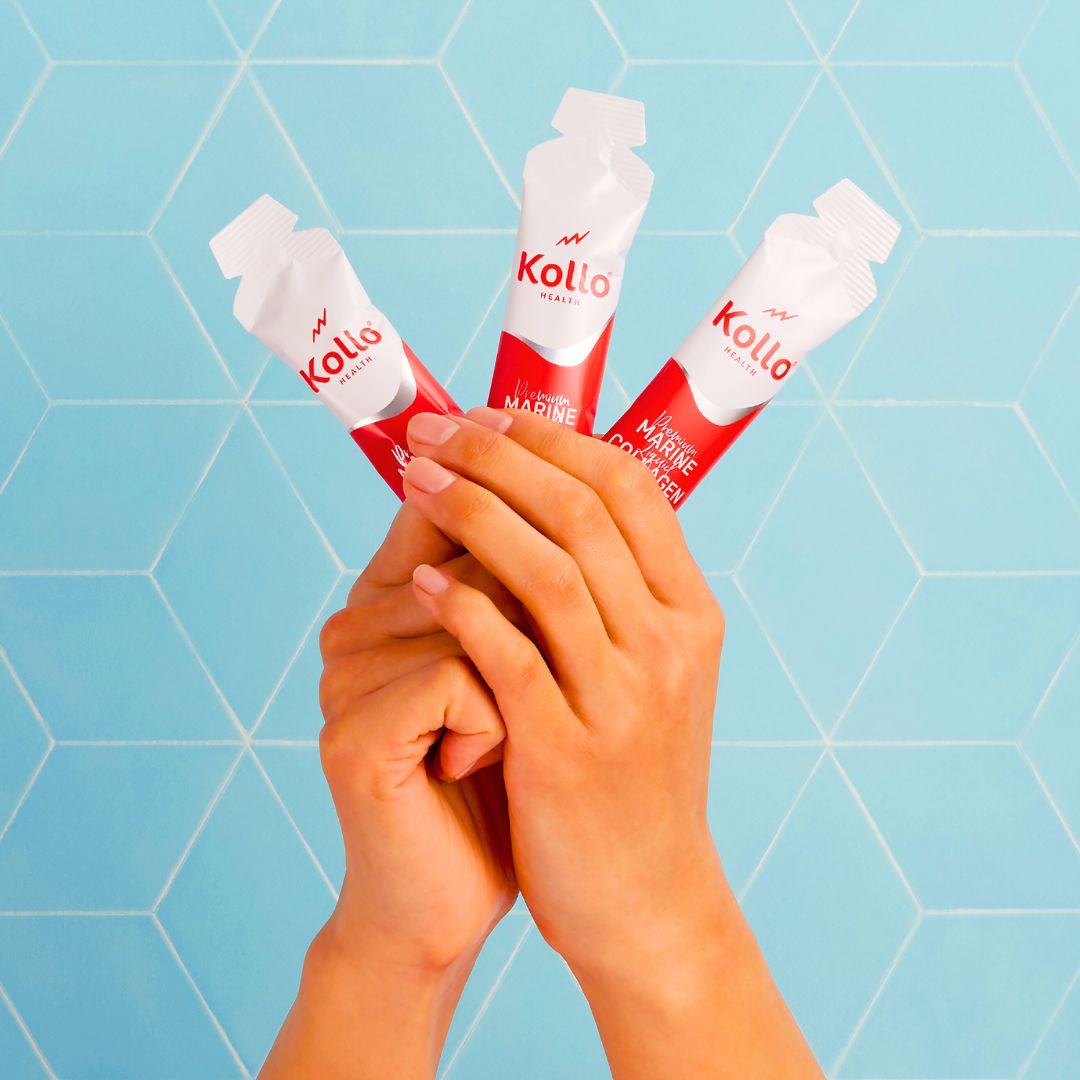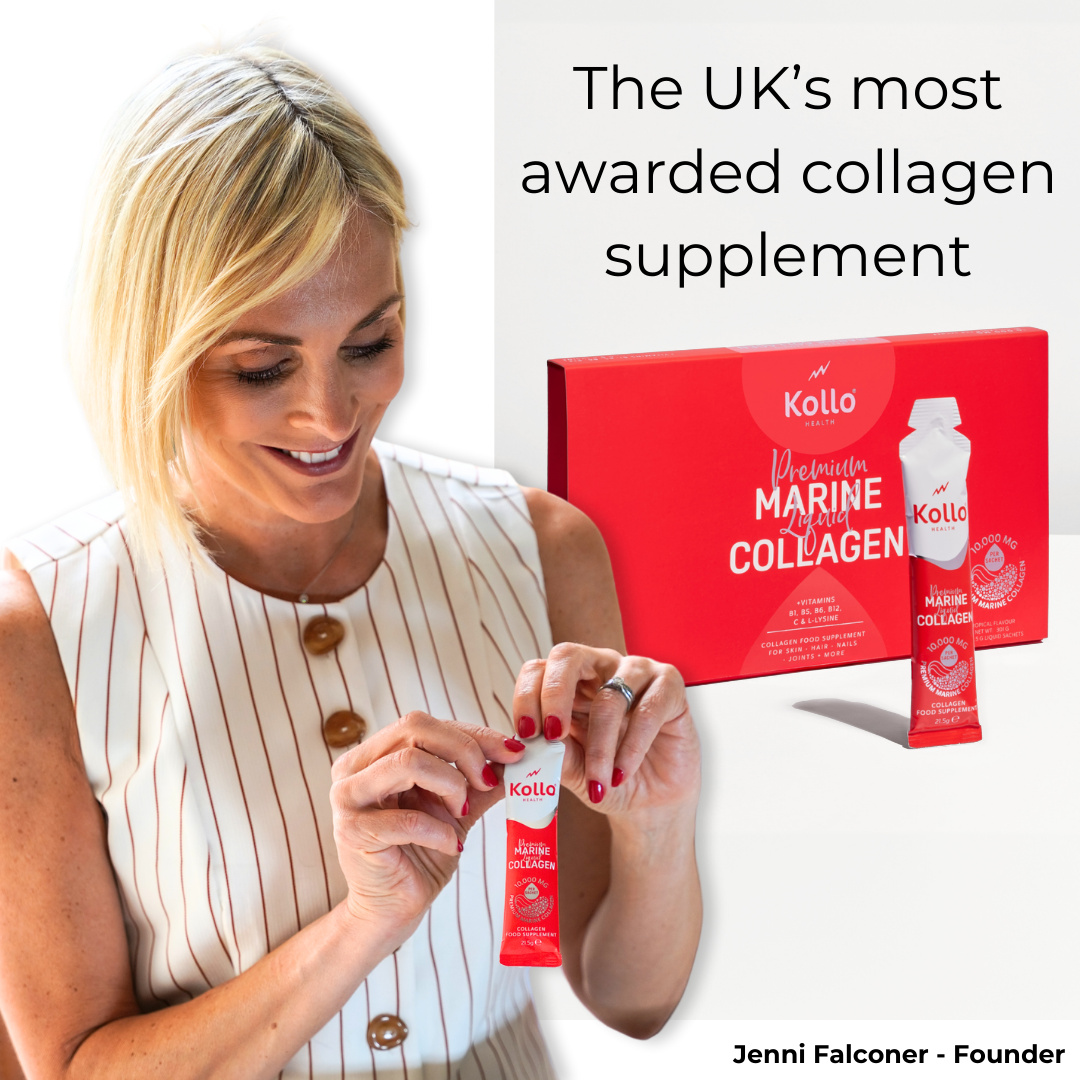Can i Take Menopause Supplements with HRT - Essential to Consider

Introduction – Understanding Menopause, HRT, and Supplements
Menopause is a natural stage in every woman’s life, typically occurring between the ages of 45 and 55. It marks the end of a woman's reproductive years and comes with a wide range of physical, emotional, and psychological changes. During menopause, hormone levels, particularly estrogen and progesterone, fluctuate, which leads to various symptoms like hot flashes, mood swings, sleep disturbances, and vaginal dryness. For many women, these symptoms can be overwhelming and disruptive, affecting daily life.
What is Menopause and How Does It Affect the Body?
Menopause is a biological process when a woman’s ovaries stop producing eggs, and menstruation ceases. The transition can span several years, known as perimenopause, and results in a decline in the production of reproductive hormones, primarily estrogen and progesterone. These hormonal changes can lead to a variety of physical symptoms such as irregular periods, hot flashes, night sweats, mood swings, vaginal dryness, and memory lapses.
One of the most significant impacts of menopause is on bone health. The decrease in estrogen production leads to a faster breakdown of bone mass, increasing the risk of osteoporosis. Additionally, many women experience changes in metabolism, making weight management more challenging. The skin and hair also suffer from the reduced estrogen, leading to thinning hair, dryness, and wrinkles. While menopause is a natural part of aging, the symptoms can be difficult to manage without proper support and treatment.
What is Hormone Replacement Therapy (HRT)?
Hormone Replacement Therapy (HRT) is a medical treatment that aims to replace the hormones no longer produced by the ovaries during menopause, namely estrogen and progesterone. HRT is widely used to treat the symptoms of menopause, such as hot flashes, mood swings, and vaginal dryness. By restoring hormone levels, HRT helps to relieve these common symptoms and improve the quality of life for many women experiencing menopause.
Why Do Women Consider Menopause Supplements Alongside HRT?
Many women turn to menopause supplements as an additional means to manage their symptoms and support their overall health during this transitional period. Supplements often contain natural ingredients like herbs, vitamins, and minerals that can help ease some of the discomforts of menopause. Women who choose to combine supplements with HRT often do so because they want to address specific concerns that HRT alone may not fully alleviate. For example, supplements such as calcium and vitamin D are commonly taken to support bone health, as HRT may not always provide sufficient protection against osteoporosis.
Can You Take Menopause Supplements with HRT?
The question of whether it's safe to take menopause supplements alongside HRT is one that many women face. While some supplements are safe to take with HRT, others may have interactions that could affect the efficacy of the treatment. Some supplements may contain compounds that mimic estrogen in the body, which could alter the balance of hormones in a way that is not ideal for women taking HRT. Overall, it is crucial to approach the combination of supplements and HRT with caution. It is always recommended to consult a healthcare provider before adding any supplements to your routine, especially if you are already on HRT.
Are Supplements Safe to Use with HRT?
Generally speaking, most liquid menopause supplements are safe to use with HRT, provided that they do not contain ingredients that interact negatively with the hormones being replaced. However, some supplements, particularly herbal remedies, may have hormonal effects on their own, which could either enhance or hinder the effects of HRT. For example, phytoestrogens found in herbs like black cohosh and soy are plant-based compounds that mimic estrogen in the body, which could potentially lead to an overload of estrogenic activity when combined with HRT. This is why it's important to choose supplements carefully and discuss any new supplement regimen with your doctor.
Do Supplements Enhance or Interfere with HRT?
Supplements can both enhance and interfere with HRT, depending on their ingredients and how they affect the body’s hormonal balance. Some supplements, like calcium and vitamin D, complement HRT by supporting bone health and alleviating fatigue, which are common side effects of menopause and HRT. On the other hand, certain herbal supplements, such as black cohosh or red clover, may enhance the effects of HRT by addressing hot flashes and other menopausal symptoms. However, some supplements can cause issues, such as interfering with the body’s ability to metabolize hormones or altering the hormone levels themselves.
It’s essential to carefully research any supplements you're considering, particularly those that contain herbs or compounds that may mimic or influence hormone levels. As with any supplement, it’s best to talk to a healthcare professional who can guide you in selecting products that are safe to use alongside HRT.
Expert Opinions on Combining Supplements with HRT
Experts generally agree that combining supplements with HRT can be beneficial if done correctly, but they also emphasize the importance of caution. Most healthcare providers recommend that women who are taking HRT should consult with their doctor before starting any supplements, as there could be potential interactions. For example, a supplement with high levels of phytoestrogens may not be advisable for someone already receiving hormone therapy, as it could lead to an excess of estrogen in the body.
Benefits of Using Menopause Supplements with HRT

Addressing Nutritional Deficiencies for Better Symptom Relief
Many women experience nutritional deficiencies during menopause, which can exacerbate symptoms such as fatigue, joint pain, and mood swings. Supplements like vitamin B12, iron, and magnesium can help fill these gaps, improving overall well-being and making menopause more manageable.
Supporting Bone Health and Reducing Osteoporosis Risk
Estrogen plays a crucial role in maintaining bone density, and its decline during menopause increases the risk of osteoporosis. While HRT can slow bone loss, adding supplements like calcium, vitamin D, and magnesium provides additional support for strong bones. Marine collagen 10000mg, for instance, has been shown to improve bone strength and joint health.
Managing Mood Swings and Sleep Issues Naturally
Mood swings, anxiety, and sleep disturbances are common menopause symptoms. Supplements such as omega-3 fatty acids, magnesium, and herbal remedies like valerian root and ashwagandha can help regulate mood and improve sleep quality, complementing the benefits of HRT.
Boosting Energy and Reducing Fatigue
Menopause-related hormonal changes can lead to persistent fatigue and low energy levels. Supplements like vitamin B complex, iron, and coenzyme Q10 may help boost energy levels and support cellular metabolism, making daily activities more manageable.
Potential Risks and Interactions to Consider
Can Certain Supplements Reduce the Effectiveness of HRT?
Some herbal supplements, particularly those with phytoestrogens like soy isoflavones and red clover, may interfere with HRT by altering estrogen levels. Additionally, high doses of vitamin E and certain adaptogens may influence how the body metabolizes HRT hormones.
Side Effects of Combining Supplements with HRT
Taking multiple supplements alongside HRT can increase the risk of side effects, including digestive issues, headaches, and hormonal imbalances. Overuse of calcium supplements, for example, can lead to kidney stones, while excessive vitamin D intake may cause toxicity.
Who Should Avoid Taking Menopause Supplements with HRT?
Women with certain health conditions, such as a history of estrogen-sensitive cancers, blood clot disorders, or liver disease, should be cautious about combining supplements with HRT. Consulting a healthcare provider is essential to determine the safest approach.
Best Menopause Supplements to Take with HRT
Vitamins and Minerals That Complement HRT (Vitamin D, Calcium, Magnesium, etc.)
Nutrients like vitamin D, calcium, magnesium, and vitamin K2 are vital for bone health and complement the benefits of HRT. Additionally, B vitamins support energy levels and cognitive function.
Herbal Remedies and Their Impact (Black Cohosh, Red Clover, Ashwagandha, etc.)
Herbs like black cohosh, red clover, and ashwagandha have been traditionally used to ease menopause symptoms. However, their interaction with HRT should be carefully monitored to avoid potential side effects.
Omega-3 Fatty Acids for Inflammation and Heart Health
Omega-3 fatty acids from fish oil or flaxseed help reduce inflammation, support heart health, and improve joint mobility. These benefits make them a great addition to an HRT regimen.
Probiotics for Gut and Hormonal Balance
Gut health plays a crucial role in hormone regulation. Probiotics help maintain a balanced gut microbiome, which can improve digestion, immune function, and overall hormonal stability.
How to Take Menopause Supplements Safely with HRT

Consulting Your Doctor Before Adding Supplements
Before taking any menopause supplements with HRT, it is important to consult a healthcare provider to ensure compatibility and avoid potential risks.
How to Monitor Symptoms and Adjust Dosages
Tracking symptoms and adjusting supplement intake based on individual needs can help optimize benefits while minimizing side effects. Be sure to talk with your doctor before making any changes to the dosages you’re taking.
When to Stop or Switch Supplements for Better Results
If a supplement causes unwanted side effects or does not provide noticeable benefits, it may be necessary to discontinue use or try alternative options.
If a supplement causes unwanted side effects or does not provide noticeable benefits, it may be necessary to discontinue use or try alternative options.
Conclusion – Should You Take Menopause Supplements with HRT?
The decision to take menopause supplements alongside HRT is a personal one and depends on a variety of factors, including the symptoms you're experiencing, your overall health, and your doctor's advice. While certain supplements, such as vitamins and minerals, can enhance the benefits of HRT, others may interfere with its effectiveness or cause unwanted side effects. It is always a good idea to consult with a healthcare provider before adding any new supplements to your regimen to ensure compatibility and safety.
Key Takeaways for Women on HRT
-
Supplements like calcium, vitamin D, and magnesium can complement HRT by supporting bone health and reducing fatigue.
-
Herbal supplements, such as black cohosh and red clover, may help alleviate menopausal symptoms but should be used cautiously with HRT.
-
Always consult with your doctor before adding supplements to your routine, especially if you are undergoing HRT.
When to Seek Professional Guidance
If you're considering taking menopause supplements with HRT, it's crucial to seek professional guidance. A healthcare provider can help you determine which supplements are safe to take and which may interact with your HRT. If you're experiencing side effects from HRT or supplements, or if you’re unsure about your supplement choices, your doctor can offer advice on adjusting your regimen to improve your health and well-being during menopause.
